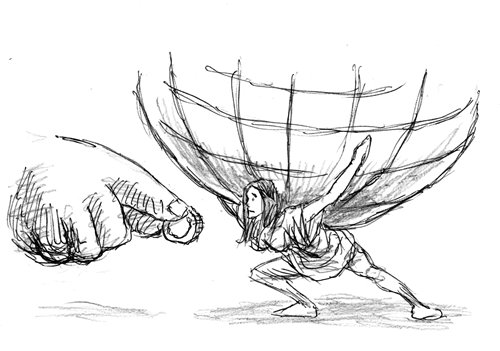
Illustrations: Peter C. Espina(Photo: Global Times)
It was reported that nearly one in five job postings for China's 2018 national civil service specified "men only," "men preferred" or "suitable for men," and major firms including Alibaba promised applicants "beautiful girls" as co-workers in their recruitment ads.
Although some enterprises immediately removed the offending job ads and apologized, gender discrimination in China's recruitment market remains an alarming issue. Sexual objectification of females is often seen in recruitment ads in the country. Requiring women to have certain physical attributes, for instance, taller than 162 centimeters and below 65 kilograms, that are irrelevant to job duties is not news in China. Some internet companies even use physical attributes of their female employees to attract prospective male applicants.
In a recruitment video Alibaba released earlier, a female employee was pole dancing with a montage of women workers saying "I love tech boys." Featuring "sexy" female employees in recruitment posters, the e-commerce conglomerate seems to be proud of its key perk: beautiful girls.
Alibaba-like Chinese firms are supposed to be a role model in eliminating gender inequality. It's shameful that they regressed to such recruitment strategies.
China's laws and regulations prohibit gender discrimination in employment and advertisements, and it has been decades since the notion that "women can hold up half the sky" was put forward. But still females are believed to be less intellectually, physically and psychologically capable than males in the job market. The need to accommodate maternity leave has worsened the situation, especially with the ending of the one-child policy. Employers are often reluctant to hire women of childbearing age, worrying that they will potentially take maternity leave twice. Such discrimination has contributed to the widening gender pay gap: Females earn 22 percent less than their male counterparts, according to media reports. The whole situation is becoming a vicious circle.
Some Western media outlets attribute gender discrimination to the government's suppression of freedom and equality. This is unfair. China has enough laws and regulations to protect gender parity. The discriminative recruitment ads are isolated practices by employers.
Gender bias in the workplace is indeed a serious phenomenon in China, but in the relentless efforts of the Chinese government, outstanding achievements have been made over the past few years.
For instance, 45 percent of Baidu's employees are women and the ratio "is also reflected in mid and senior positions," according to the search engine giant. The percentage is apparently much higher than the figure of several years ago.
This is the result of endeavors by the Chinese government. China has enacted a series of laws and regulations to remove barriers facing women in the job market. Females have more diverse channels to voice their opposition to discrimination.
To alleviate and eventually eliminate gender discrimination, legislation isn't enough. More efforts should be put into establishing law enforcement mechanisms. Companies found to have discriminated against female employees were, in most cases, simply asked to remove the ads, but rarely fined. Harsher punishments may help the firms to exercise self-censorship and establish interior mechanisms to prevent similar discriminative cases from happening again.


